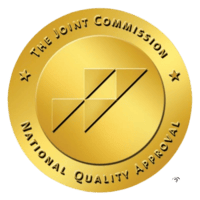Understanding Cultural Competence
Understanding and respecting diverse cultures, beliefs, and practices is crucial in healthcare settings, especially addiction detox programs. Cultural competence means effectively communicating with people from different ethnic, religious, and socio-economic backgrounds. Cultural literacy helps foster cultural competence by promoting knowledge, awareness, and sensitivity toward different cultures.
Cultural competence entails more than understanding and respecting cultures. It also demands adaptation and flexibility in providing care that aligns with the patient’s cultural context. In the field of addiction detox, multicultural counseling plays a key role. Achieving cultural competence is a process that takes time. It requires continual learning, self-reflection, and commitment to an ethnically diverse clientele, recognizing it’s a journey, not a destination.
Role of Culture in Addiction Recovery
Understanding how culture influences addiction recovery shows how much it shapes a person’s journey toward sobriety and well-being. Culture includes beliefs, values, customs, and behaviors which impact a person’s view on addiction and recovery. Cultural stigma can dissuade individuals from substance abuse but might deter those struggling with addiction from seeking help, fearing ostracization or judgment, further exacerbating the addiction cycle.
Traditional healing, another cultural aspect, can also play a significant role in addiction recovery. Indigenous methods, deeply rooted in cultural beliefs, provide alternative or complementary paths to conventional treatment. These practices often focus on holistic wellness, integrating physical, mental, and spiritual health. Addressing these cultural factors is critical in formulating effective and culturally competent detox programs like those offered at BlueCrest Detox.
Current Cultural Competence Practices
Examining the landscape of addiction detox programs, a growing emphasis on cultural competence has reshaped traditional approaches, integrating culturally sensitive practices. The shift is largely in recognition of culture’s critical role in recovery. Current practices involve understanding and addressing cultural biases that hinder treatment accessibility, educating staff about different backgrounds, acknowledging culture-specific issues, and adjusting treatment plans to accommodate these differences.
Importantly, detox programs are focused on creating a non-judgmental environment that respects and values every individual’s cultural identity. Cultural competence integration extends to aftercare, ensuring a supportive return to society that respects the person’s cultural background. This method aids in minimizing the risk of relapse and guarantees sustained recovery, incorporating a comprehensive, culturally aware approach.
Benefits of Culturally Competent Detox Programs
Implementing cultural competence in addiction detox programs enhances treatment accessibility and improves recovery effectiveness. Detox success rates increase when cultural competence is integrated into treatment approaches, largely due to the tailored method considering patients’ unique cultural backgrounds and experiences. Personalized treatment plans grounded in cultural understanding foster trust and comfort, encouraging active participation.
This patient-centered approach considers cultural beliefs, values, and practices, eliminating potential barriers to effective treatment. Culturally competent detox programs promote health equity, ensuring all individuals, regardless of their background, achieve their fullest health potential. Cultural competence in detox programs is not just social justice, but a strategy enhancing detoxification efficacy and success.
Improving Cultural Sensitivity in Detox Programs
Enhancing structural sensitivity is essential and requires meticulous planning. Diversity training is potent in helping staff comprehend cultural nuances, strengthen empathy, and promote compassionate patient care. Such training should be extensive, aiming to dismantle biases, misconceptions, and stereotypes possibly impeding the treatment process, thus optimizing addiction detox program effectiveness.
Inclusive policies also improve cultural sensitivity by respecting cultural differences, fostering an environment where patients feel understood and valued. This can include language services, diet modifications respecting cultural practices, or incorporating alternative healing practices in treatment plans when appropriate. Efforts must be continuous and adaptive to address diverse patient needs.

Final Thoughts
Cultural competence in addiction detox programs is essential for health equity and effective patient care. By acknowledging and adapting to diverse cultural contexts, detox programs can enhance treatment effectiveness, patient comfort, and participation. Continual commitment to cultural competence is vital to eliminate barriers to successful detoxification. Future research should focus on improving sensitivity in programs to cater to unique patient needs.
At BlueCrest Detox, we’re dedicated to elevating you from the struggles of substance use to the peaks of recovery and resilience. Our expert team offers personalized, evidence-based treatment services tailored to support your unique journey toward healing. Reach out to us for the compassionate care you deserve on your path to wellness. Follow us on Facebook for ongoing support, insights, and inspiration on your recovery journey.
Frequently Asked Questions
What Is the Average Cost of a Culturally Competent Addiction Detox Program?
The average cost of an addiction detox program varies greatly depending on factors like insurance coverage and program effectiveness. A culturally competent program may necessitate additional investment, ensuring more personalized, effective treatment for diverse populations.
Are There Any Online Resources for Cultural Competence Training in Addiction Treatment?
Yes, numerous online resources provide training in cultural competence for addiction treatment, address cultural stereotypes, and evaluate training effectiveness. These include SAMHSA’s TIP 59 and the National Institute on Drug Abuse.
How Can Family Members Support a Loved One in a Culturally Competent Detox Program?
Family members can support a loved one by understanding cultural sensitivity, respecting their beliefs and traditions, and actively participating in their recovery process, thereby enhancing the effectiveness of the detox program.
Are There Any Potential Drawbacks or Challenges to Implementing Cultural Competence in Detox Programs?
Implementing cultural competence in detox programs can face challenges. Understanding barriers such as policy coordination, resource constraints, and potential resistance to change can complicate the integration of cultural competence into these programs.
Can Cultural Competence Be Integrated Into Telemedicine for Addiction Detox Care?
Yes, cultural competence can be integrated into telemedicine for addiction detox care despite telemedicine limitations. However, it may be challenging due to technological accessibility issues, particularly in marginalized or technologically disadvantaged communities.




